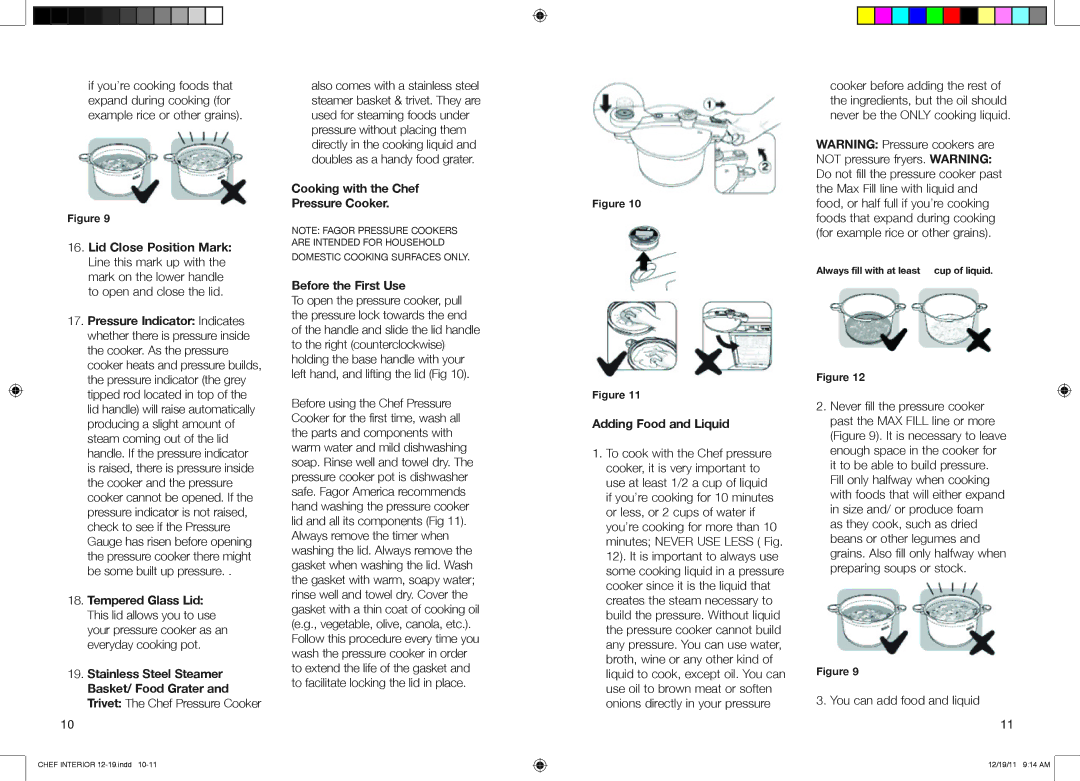918010053, 918010051, 918010052 specifications
Fagor America has established itself as a leader in providing high-quality kitchen appliances, with the models 918010052, 918010051, and 918010053 standing out for their exceptional features and technologies. Designed for both efficiency and convenience, these products cater to culinary enthusiasts as well as busy home cooks.The Fagor 918010052 is a versatile electric pressure cooker that combines multiple cooking functions into one compact appliance. With programmable settings, it allows users to sauté, steam, cook rice, and slow cook, making it an all-in-one solution for meal preparation. One of its main features is the rapid cooking capability, which significantly reduces cooking time while retaining essential nutrients in food. The automatic pressure release function ensures added safety, while the built-in timer allows for precise cooking control.
The 918010051 model offers an innovative approach to steaming and pressure cooking, designed specifically for health-conscious consumers. Featuring a stainless-steel construction, it is not only durable but also easy to clean. The steam basket that comes with this model enables users to prepare vegetables and seafood while preserving their natural flavors and nutrients. This model also features an easy-to-read digital display and user-friendly controls, making the cooking process seamless and straightforward.
Finally, the 918010053 model takes convenience to the next level. This multi-cooker includes advanced safety mechanisms, such as overheat protection and a locking lid, ensuring that users can cook with peace of mind. The ceramic non-stick interior guarantees an effortless cleaning experience and promotes healthier cooking by requiring less oil.
All three models feature a sleek design that easily blends into modern kitchen decor. They are equipped with energy-efficient technologies that reduce power consumption without compromising cooking performance. Additionally, the manufacturers prioritize safety and ease of use in all their products, evidenced by the clear instructional manuals and responsive customer service.
In summary, Fagor America's 918010052, 918010051, and 918010053 stand out for their innovative designs, advanced cooking technologies, and user-friendly interfaces. Each model offers unique features tailored to a variety of cooking preferences and needs, making them essential tools for any kitchen. Whether you are looking to prepare quick meals, focus on healthy eating, or want a reliable multi-cooking solution, these models provide exceptional value and performance.

